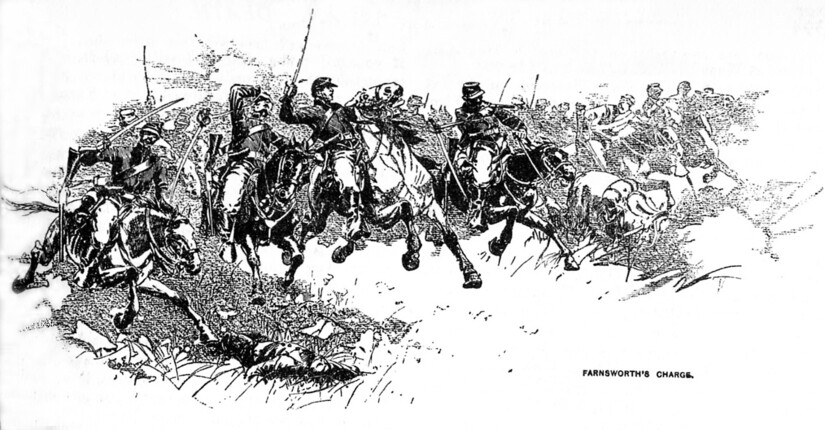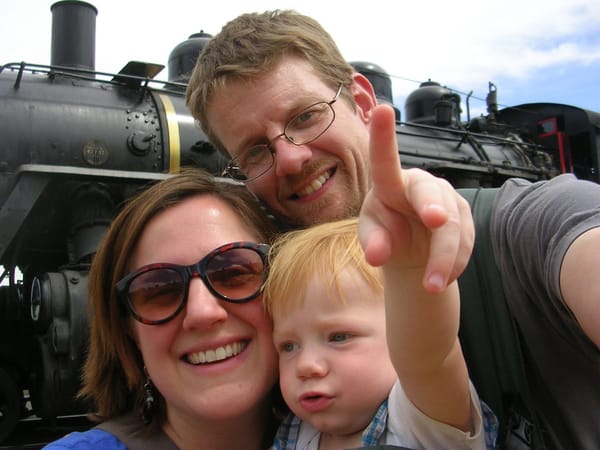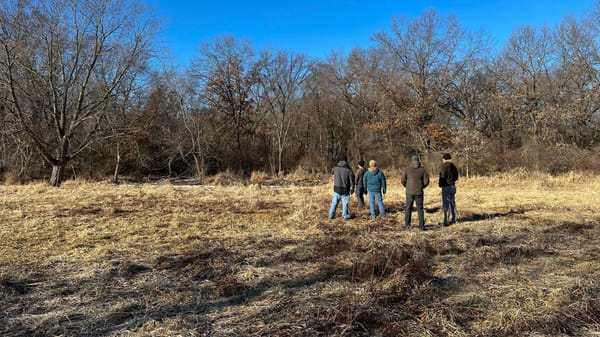Local history: a Rockton hero — General Elon John Farnsworth
Elon John Farnsworth, a hero of the Battle of Gettysburg, is buried in Rockton Township Cemetery.

Elon John Farnsworth moved to Rockton, Illinois in 1854, when he was 17, with his father James Patten Farnsworth. As a captain in the Union Army, he was given command of Brigade 1, Division 3 on June 28, 1863, three days before the Battle of Gettysburg. The next day, President Abraham Lincoln nominated him to the rank of brigadier general but on July 3, Farnsworth was killed in battle at age 25. He is buried in Rockton Township Cemetery.
More local history appears in our free newsletter.
A recollection on the heroic death of Elon John Farnsworth of Rockton:
In the Journal of Military Service Institution for March 1910, page 343, General W.M. Graham, U.S.A. Retired, wrote: "The following is the account of Farnsworth's death as seen by a Confederate officer and by him related to me in the winter of 1876-77 at Columbia, South Carolina.
“I was introduced to a Captain Bachman, who commanded the Ham(p)ton Legion Battery with which I was engaged at Gettysburg on July 3rd. Naturally our conversation drifted to the war, and he remarked: 'One of the most gallant incidents of the war witnessed by me was a cavalry charge at the battle of Gettysburg on July 3rd, made by General Farnsworth of the Yankee army. He led his brigade, riding well ahead of his men in a charge against my battery and the infantry supports; we were so filled with admiration for his bravery that we were reluctant to kill him, and so called out to him to surrender, as his position was hopeless. He replied by emptying his revolver and then hurling it at us and drawing his saber, when we shot him through the body, killing him. His men were nearly all killed, wounded or captured, very few escaping to their own lines.

"That is an eyewitness account of Farnsworth’s death. Everything that Farnsworth was, and everything that he did in the uniform of his country, argues that it is the true account. Farnsworth was courageous. He was defiant. Already severely wounded when he charged Bachman's battery, he was defiant to the last. Instead of turning his weapon upon himself in a sacrificial gesture of defeat, he hurled it at his foes, received their fire, and died—one of the greatest heroes who ever led a hopeless venture in the great war between the states.”
Farnsworth argued the wisdom of this charge with his commanding general, Hugh Judson Kilpatrick, but followed orders. After the Battle of Gettysburg, Kilpatrick earned the nickname “Kill-cavalry” for his reckless command actions and for needlessly endangering the lives of men in his command. A few years after the war, Kilpatrick came to Rockton and made a speech!
The Dec. 28, 1877 issue of the Rockton Herald said about the lecture, "The popular belief in this place that Gen. Kilpatrick was instrumental in effecting the death of Gen. Farnsworth, one of Rockton's 'boys in blue,' was very satisfactorily explained to the entire exoneration of Gen. Kilpatrick in his remarks after finishing his lecture." However, most historians aren't convinced and Kilpatrick's legacy remains clouded.
More local history
- Allie's transportation drawings, age 16, from 1891
Horses, carriages, trains, and friends at the Beloit train station - Exploring the history of schools in Roscoe Township
school in the blacksmith shop - Since 1910: the Roscoe Fall Festival over the years
livestock show, fairies, elves, flowers, and the most perfect baby - Memorial Day, 1908
Decoration Day, the Spider Web Social, revolutionists in Russia, safecrackers in Roscoe - This Week in... 1877: Vegetine!
grazing ordinances in Roscoe, Crazy Horse, land rush - Next Week in... 1877
temperance and phrenology - This Week in... 1879
kissing the groom, Victor Hugo, this country is just full of climate. - This Week in... April 1877
rights of intolerance in education, free land in Kansas





